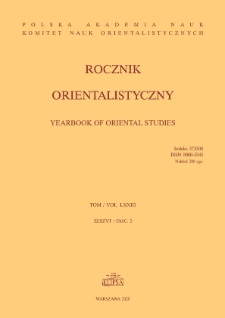On how to speak about universals and particulars
in the Jaina philosophical literature of the classical period (5th-10th c. CE)
On how to speak about universals and particulars
in the Jaina philosophical literature of the classical period (5th-10th c. CE)
Author(s): Małgorzata GlinickaSubject(s): Philosophy
Published by: Komitet Nauk Orientalistycznych Polskiej Akademii Nauk
Keywords: sāmānya; viśeṣa; vastu; artha; pramāṇa; substance; mode; describability
Summary/Abstract: The main concern of the paper is to analyze the problem of describability of universals (sāmānya) and particulars (viśeṣa) in the light of their ontological and epistemological foundations (substance and mode compositum, cognitive criteria etc.) presented in the Jain Literature of the Classical Period (5th-10th c. CE) in order to demonstrate a way in which the Jain theory of universals and particulars has an impact upon the way we describe reality through language. I take into consideration the fact that, according to the Jain philosophy, reality is not describable in the complete way and that there is always – in any linguistic act of picturing the world – the margin of non-cognizance and non-expressiveness. The Jain philosophy of language offers the original solutions, different from those given by other Indian thinkers, to the above-mentioned problems.
Journal: Rocznik Orientalistyczny
- Issue Year: 73/2020
- Issue No: 2
- Page Range: 111-145
- Page Count: 35
- Language: English

